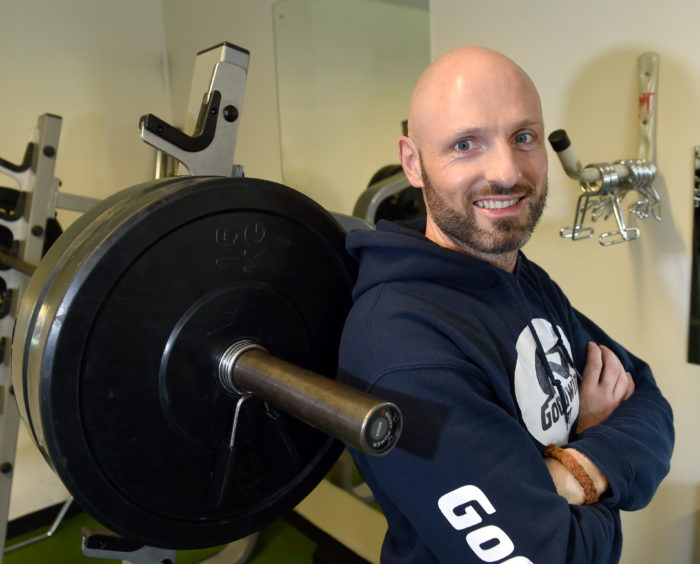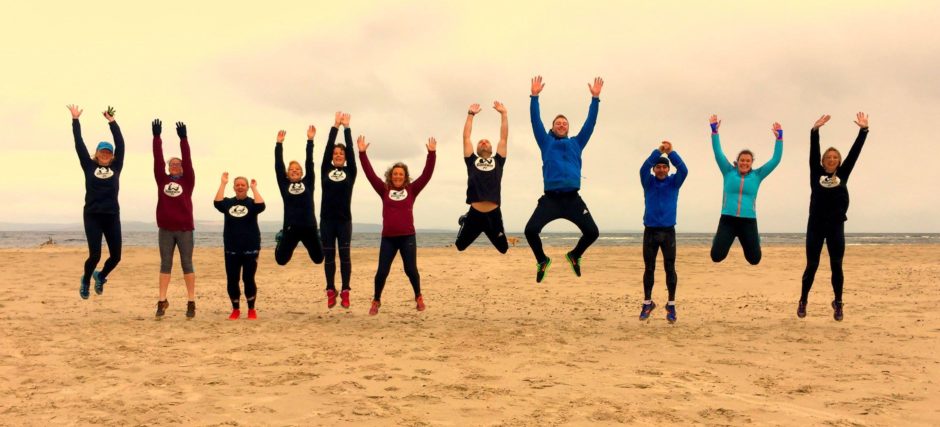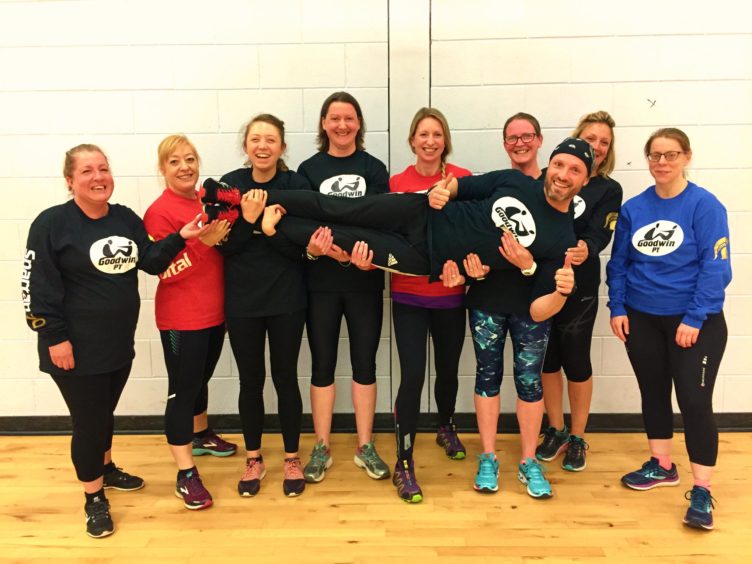At the start of their commitment to physical exercise, personal trainer Alan Goodwin encourages his clients to take pictures of themselves.
It serves as a motivational tool, allowing people to see the effect of their toil more clearly.
It’s a pretty useful thing to have in the bag when you’re struggling to drag yourself to the gym.
You might not notice the changes day-to-day so easily but some hard evidence of your weight loss or muscle gain can be a handy reminder that it’s worth the effort.
But how does it work on the inside?
If we’re struggling mentally and allowing things to build up, is it always so obvious to our friends and family that we are inching closer to the brink?
At the start of the year, Alan hit rock bottom.
Deep down, he knew it had been coming for a long time. Call it masculine bravado but the 40-year-old Inverness man was a master at using working out to escape his problems.
He was in the shape of his life and his business was booming. But after one challenging training session with a client, he went home, called his brother and told him he didn’t want to be here anymore.
“It was a build-up,” Alan said. “I always felt there would be a day of reckoning if I didn’t deal with what was going on inside.
“I knew it was coming but I masked it and used escape behaviours, which is common because as humans we will always try to escape our pain.
“We will use all sorts of distractions and for me, it was my own training and my work. I loved my job and felt lucky to be a personal trainer but it became detrimental because I was using it as a means of not facing what was going on inside.
“I just wanted my own physical and mental suffering to end and I saw not being alive as an option.”
Unfortunately for Alan, this was not the only time he had felt like this.
At 18, his physical health broke down. At his worst he struggled to get out of bed for days at a time, crippled by muscle and joint pain, dizziness, exhaustion and depression.
Regular trips to the GP resulted in little more than a sympathetic ear and an offer of antidepressants before years of tests resulted in him being diagnosed with myalgic encephalomyelitis (ME) – also known as chronic fatigue syndrome.
Unable to work for years and spending his time alone either in bed or on the couch he questioned whether he wanted to carry on living.
Eventually, despite his pain, he forced himself to start exercising again.
Fitness had been his passion before being diagnosed with ME had turned any thought of that as a career into a pipe dream.
He revamped his diet, habits and mindset, surrounded himself with inspirational books, music and films and re-decorated his flat with positive pictures and symbols of health and strength.
Bit by bit, he was able to reclaim some of his old life back and his recovery was the subject of a documentary film, ME and Me, which was shown at Eden Court in 2017.
Now 40, Alan is buoyed by the fact that physical exercise has helped him recover in the past, but his recent setback has shown him how important the mental health aspect is.
He said: “I was guilty of putting all my eggs in one basket and there was a part of me that fell into the trap of thinking that if I built a strong, muscular physique it would be the answer to all my problems.
“But it wasn’t. It’s a jigsaw of several pieces.
“Since I was at my lowest at the start of this year I’ve tried to embrace what is going on on the inside.
“I’ve started talking more openly about my own mental health experiences, I’m practising meditation, I’m talking about the things that have happened to me in my life and how I feel about them.
“I’m still training but I’m aware that if I’m having a bad day it’s not the only answer, so it’s no longer the escape behaviour it had become.
“I’ll have the workout because it can help me but I focus on the mental and emotional muscles as much as the physical ones now.”
Alan is returning to Eden Court’s One Touch Theatre on September 30 to deliver a talk called Mental Health Matters.
He gets a lot of satisfaction from seeing his personal training clients meeting their fitness goals and is hopeful that laying bare his experience will encourage others to be open about their own mental health.
Alan said: “The biggest thing is trying to encourage people to talk about mental illness.
“I have suffered from depression for most of my life and I know a lot of boys and men have a tendency to internalise that, to put on a façade.
“I kept these feelings inside for such a long time but I’ve now learned that when we share these experiences there is a connection and it takes away the isolation and loneliness of depression.
“In my job I often stress the importance of exercise and nutrition to clients. But they count for nothing if we neglect our emotions.”
Alan’s talk is being sponsored by Macleod & MacCallum and GA Barnie.
It takes place at Eden Court’s One Touch Theatre at 7pm on September 30. Follow this link to buy a ticket for the event.






